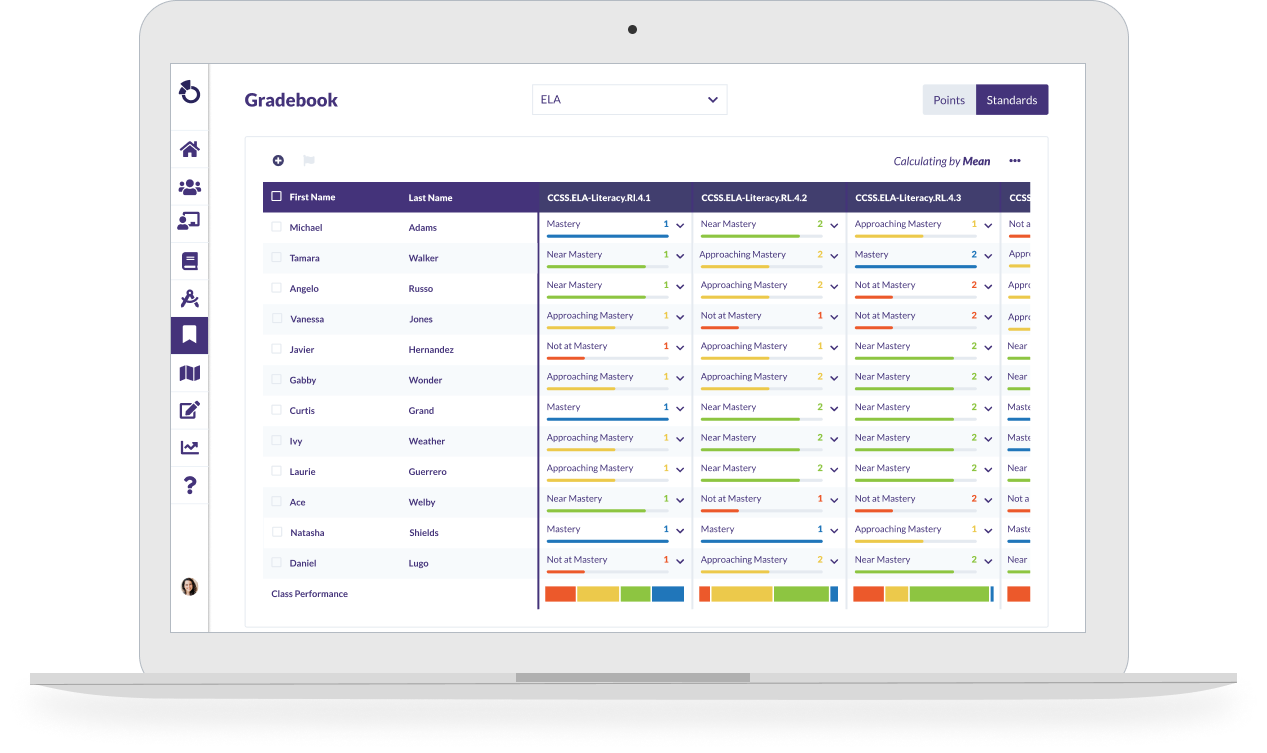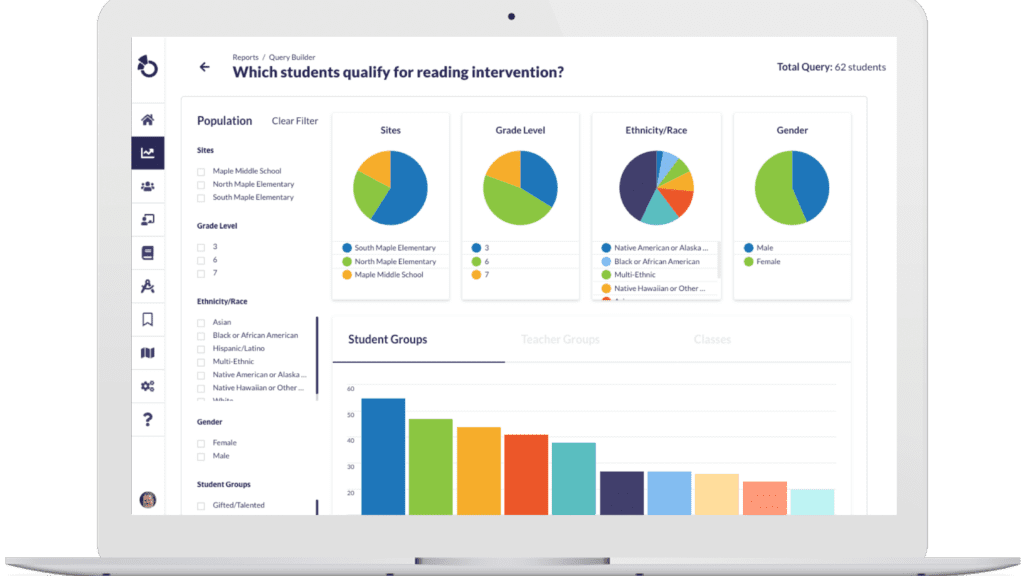Standards-based grading provides a clear and consistent way to assess and communicate student progress. It focuses on mastery of specific learning goals, promotes personalized learning, and helps both students and educators better understand areas of opportunity, ultimately leading to improved outcomes. As schools across the country have begun to implement standards-based grading, it's critical to address the "why" and "how."
In this Education Week webinar, three school leaders with extensive experience implementing standards-based grading share:
- Why schools across the country are shifting their grading approach and the different terms you may hear, including standards-based, mastery-based, and competency-based grading
- How school leaders can support educators as they align curriculum and assessments with standards
- Consistency and fairness in grading, including the importance of assessing nonacademic skills
- Communication of grading policies with students and family
- Potential roadblocks you may encounter and plans to address them effectively
Three Key Takeaways From the Webinar
Transitioning to Standards-Based Grading Takes Time and Teamwork
Moving to standards-based grading isn't quick; it requires teamwork and thorough planning. It's about simplifying complex standards into achievable learning goals and making sure everyone, including parents and students, understands these changes.
For example, imagine a school forming a teacher committee to adopt a new grading system. Over two years, they might work together on professional development, delve into the details of standards-based grading, and create a new report card system introduced slowly to the school.
“We were very intentional about going slowly when looking into standards-based grading. We had a team of teachers and a representative from each team. And so going through that process of learning about standards-based grading and why it was beneficial helped our staff really jump on board and take off with that.”
Matt Noblin
Assistant Principal
,
Sandersville Elementary School (KY)
Aligning Assessments with Educational Standards is Key
It's vital to understand how each question in an assessment relates to specific educational standards. This helps ensure that assessments truly reflect what students understand and have mastered, leading to more focused and effective teaching.
Imagine a math department revising its tests to align better with state standards. They might find that a question about solving linear equations isn't just about the right answer, but understanding the standard behind it. This could shift their approach to focus more on how questions relate to learning standards.
"We realized that we can't just look at a question, for example, solve an equation of two x plus three equals eight. What we really needed to look at is what is a problem like that actually asking for students' knowledge. So, looking at what is the content and then looking at what is the standard that goes with it."
Michelle Slattery
Instructional Coach
,
Palos Verdes Peninsula Unified School District
Emphasizing Mastery and 21st-Century Skills is Crucial
Today's education isn't just about knowing facts; it's also about skills like problem-solving, effective communication, and independence. Standards-based grading plays a key role in this, shifting toward an education that values both knowledge and practical skills.
Consider a STEM school focusing on 21st-century skills in its curriculum. Instead of traditional grades, students might be evaluated on how they use these skills in real-world projects, highlighting their understanding and application of both the subject matter and life skills.
"Our students learn the content of their classes through these learning outcomes, so it's the skill driving the instruction for our students because that is the end goal for our students – to be successful in these 21st-century skills."
Lauren Pulowski
Dean of Students
,
Bio-Med Science Academy STEM School in Ohio
Otus: The #1 Tool for Standards-Based Grading
Many schools struggle to find a tool that helps them accurately assess and communicate students’ proficiency in learning standards and course objectives. Otus automates standards-based grading processes, streamlining the assessment, tracking, and reporting of student progress.

This ensures consistency, transparency, and efficiency in grading practices, enabling educators to provide more accurate feedback and tailor instruction to meet individual student needs, ultimately leading to improved student success and school performance.
“At the completion of each of our common assessments, we are coming together as subject teams and working through the data to analyze the learning standards measured. The data is in Otus, so it's really easy to pull out standards that we need to look at more closely. Every single question on our assessment is tagged to the standard that it corresponds to making it easy to ask the question ‘What happened there?’” – Michelle Slattery
Ready to learn more about how Otus can support standards-based grading initiatives in your school community? Get in touch with our team!
Related Resources
Request a demo!
See exactly how Otus can help your school accelerate student growth and improve student outcomes – all while saving educators time.




